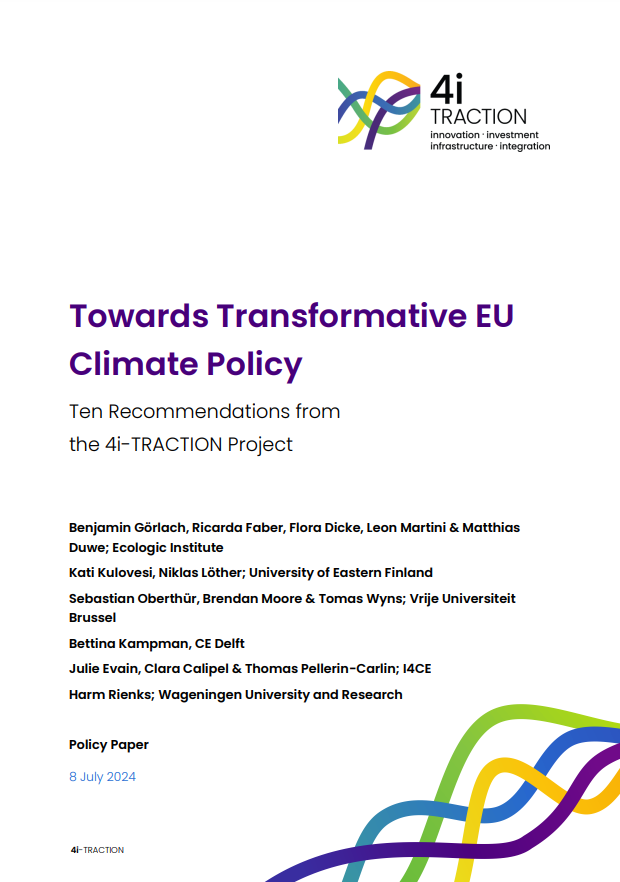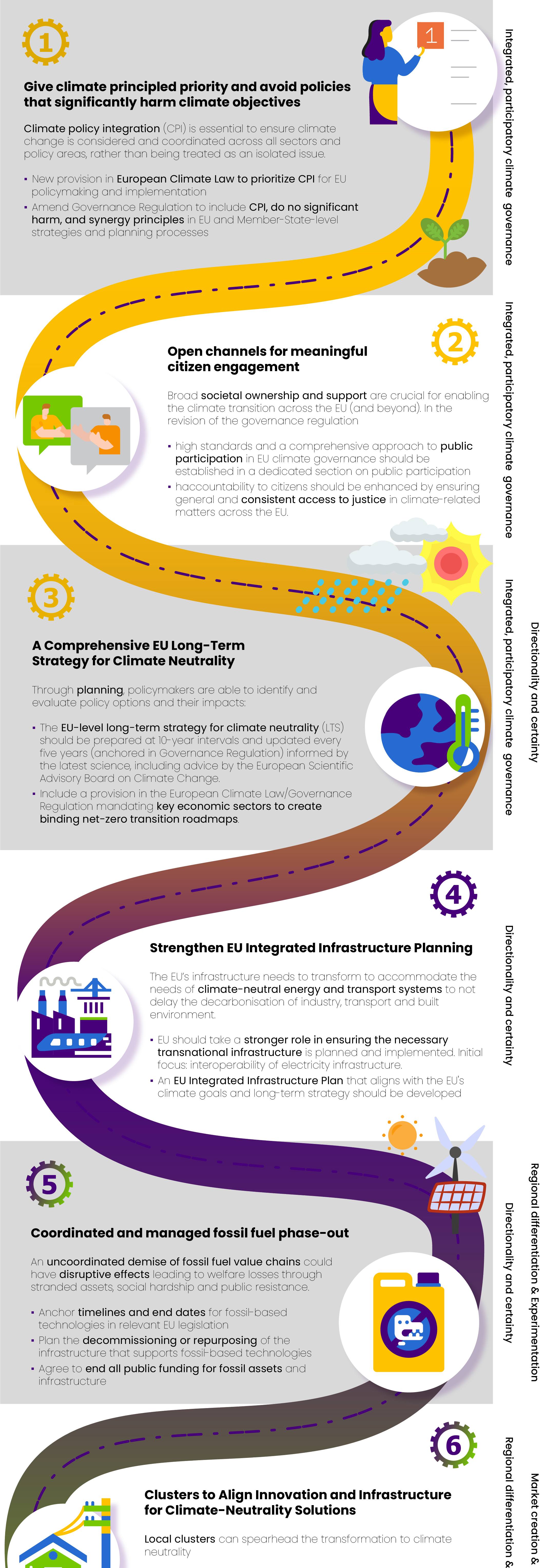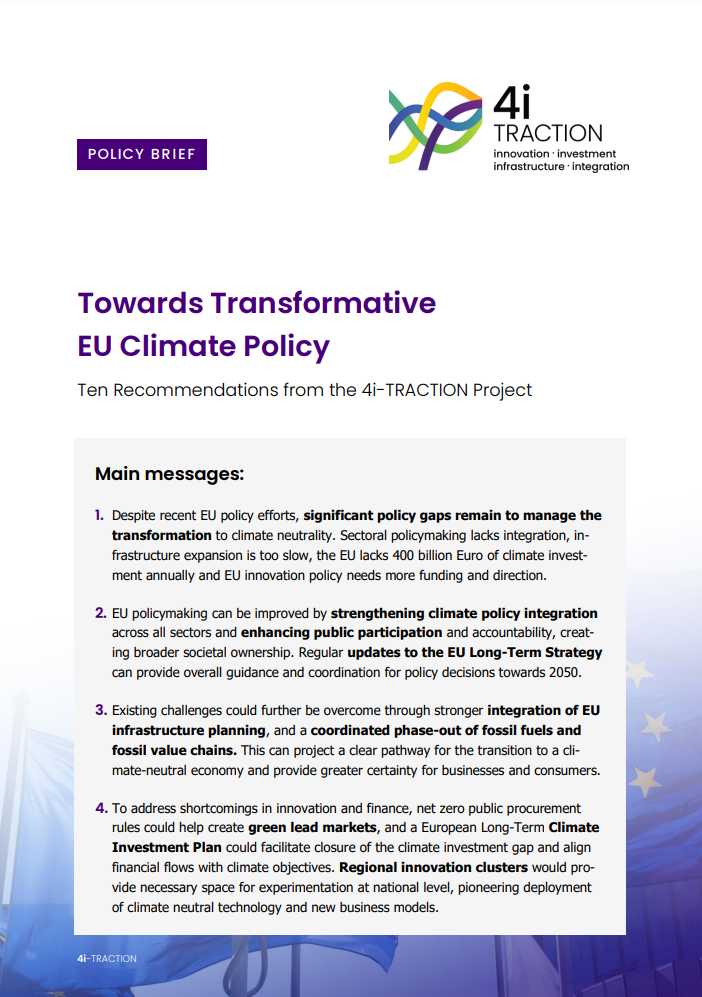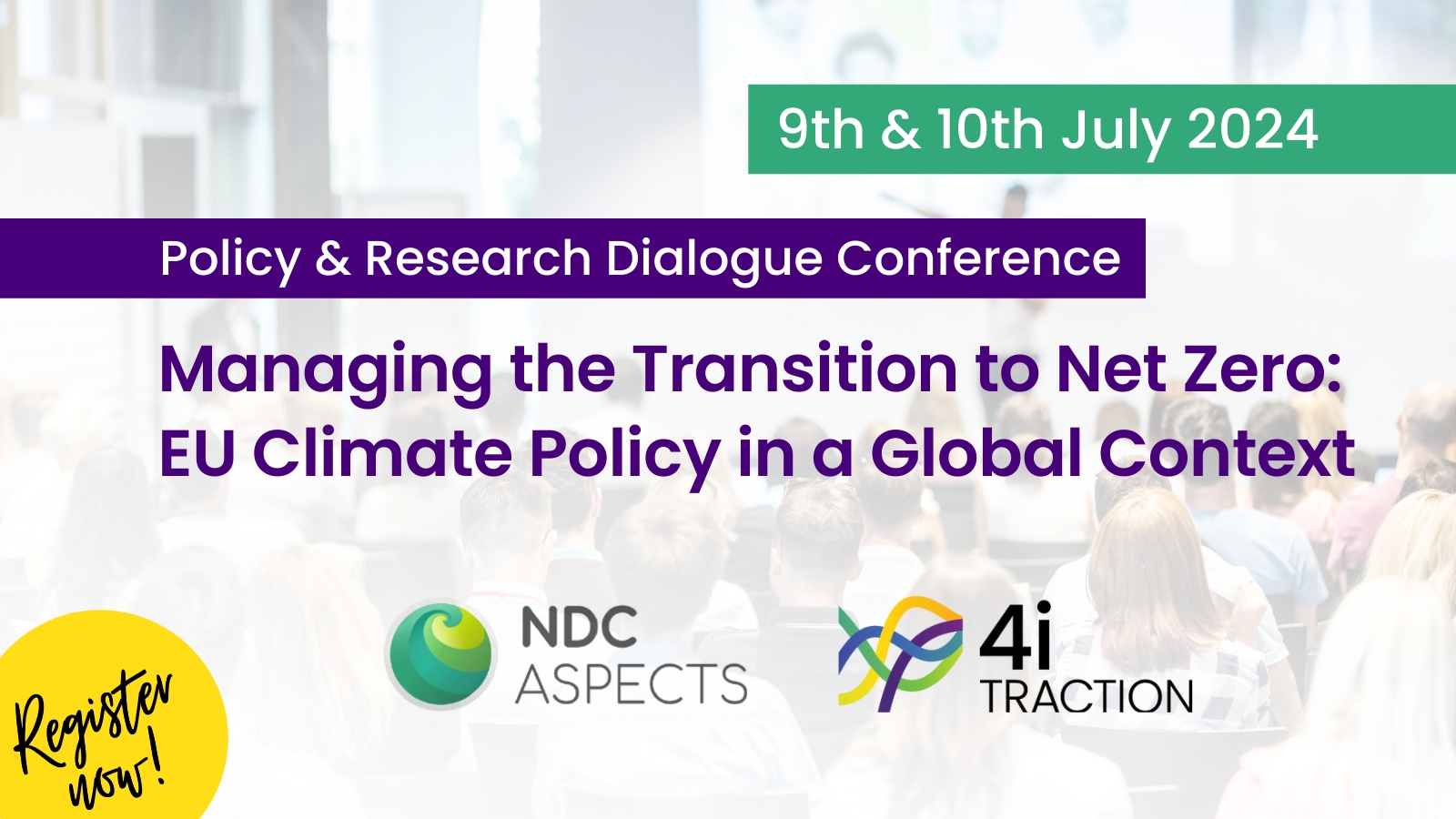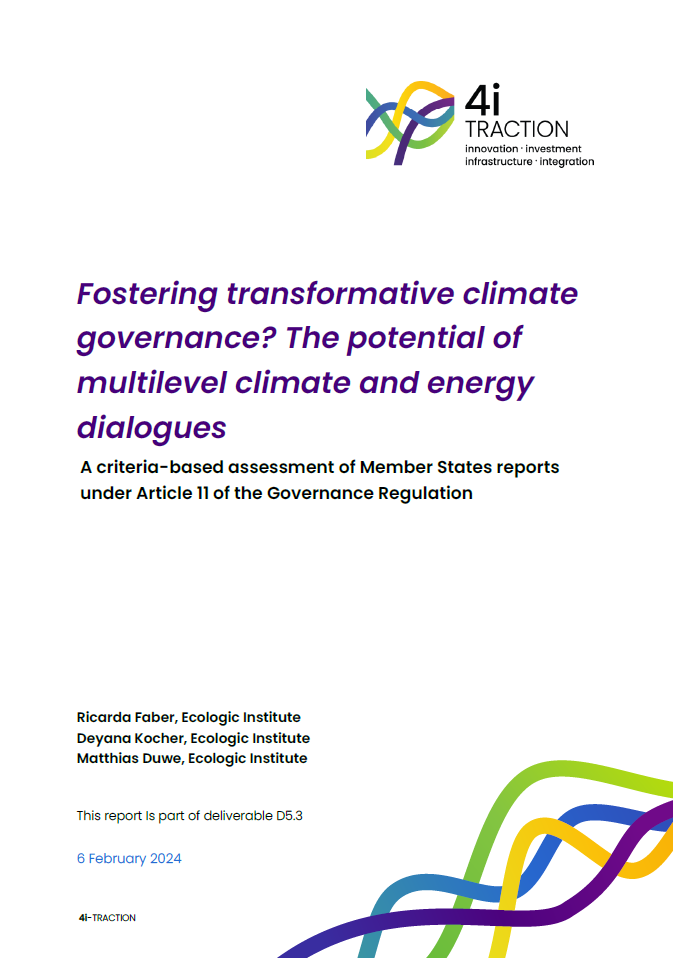Towards Transformative EU Climate Policy
Ten Recommendations from the 4i-TRACTION Project
- Publication
- Citation
Görlach et al. (2024): Towards Transformative EU Climate Policy – Ten Recommendations from the 4i-TRACTION Project. Ecologic Institute, Berlin.
The EU has set itself the goal to become the first climate-neutral continent. The European Green Deal, the European Climate Law and the Fit-for-55 package are core steps to strengthen EU climate policy, and to deliver on the EU’s ambition to create a net-zero emissions economy. But despite these efforts, the EU is not on track to climate neutrality by 2050.
Gaps In the transformation towards climate neutrality
Several transformation gaps remain in the fields of integration of policymaking, rolling out the infrastructure for a climate-neutral economy, mobilising the necessary public and private investments and deploying climate-friendly innovations at scale (Görlach et al., 2024).
Climate policy integration is still uneven across sectors and limited, for example, in agriculture and transport. Moreover, the coordination of innovation, investment, and infrastructure is deficient. To reach climate neutrality, the EU needs a whole-of-government approach that ensures all its policies are aligned with climate neutrality across all sectors, institutions, laws and policies.
The roll-out of infrastructure for a climate-neutral economy is currently too slow, especially for energy and transport infrastructure, in part due to a lacking comprehensive strategy for transnational infrastructure. The EU therefore needs to strengthen its policy efforts to deliver an EU-wide infrastructure fit for climate neutrality.
The EU faces a climate investment gap of more than €400 billion annually, and the existing framework is insufficient to mobilise funding at this scale. Moreover, the EU faces a two-fold challenge regarding investment: not only to scale up climate-friendly investments, but also end investments that perpetuate the fossil-based economy. The EU needs to increase the quantity of public funding and coordinated policies in order to ensure sufficient and predictable funding in the future.
Progress is also lacking across the innovation chain, including limited and incoherent funding and lack of directionality. But the main bottleneck is demonstration and deployment of innovations. With only two and a half decades left to get to net-zero emissions, the focus must be on deploying near- or market-ready technologies at scale. Policy support, in the form of regulations, funding, and strategic direction, is crucial for this.
Transformative Governance Needs
The challenge of transforming the EU economy to climate neutrality requires a transformative climate policy meeting several needs:
- it must ensure integrated and participatory governance to coordinate parallel and interdependent developments across sectors, address cross-cutting challenges of innovation, infrastructure, and investment, and secure societal support by involving stakeholders and ensuring buy-in;
- it needs to provide directionality and certainty amid considerable uncertainty by aligning infrastructure, investment, and regulatory frameworks, in this way providing greater predictability to businesses, investors and consumers about the necessary actions;
- it should encourage regional differentiation and experimentation to capitalize on Europe's diverse regional strengths, allowing regions to innovate based on their unique resources, skills, and infrastructure;
- it must ensure sufficient and certain funding through a coordinated approach that combines public and private investments, leveraging fiscal policy and financial regulation to align with climate neutrality and ensure a stable investment framework; and
- use market dynamics by aligning existing markets or creating new ones to scale up solutions, mobilise private funding, and stimulate demand for climate-neutral solutions by strengthening market-based elements like the EU Emissions Trading System and addressing bottlenecks on the supply side.
Recommendations
Based on extensive analysis of the EU's existing climate policy instruments and current governance framework, the 4i-TRACTION project finds that several gaps remain across the entire EU climate governance. In the new legislative term 2024-2029, the EU has the chance to close these gaps and accelerate the necessary changes towards climate neutrality. In this policy paper, we outline ten recommendations for EU climate policy going forward and provide details on their implementation:
- Give climate principled priority and avoid policies that significantly harm climate objectives
- Open channels for meaningful citizen engagement
- A Comprehensive EU Long-Term Strategy for Climate Neutrality
- Strengthen EU Integrated Infrastructure Planning
- Coordinated and managed fossil fuel phase-out
- Clusters to Align Innovation and Infrastructure for Climate-Neutrality Solutions
- Transformative public funding
- A European Long-Term Climate Investment Plan to Close the Climate Investment Deficit
- Develop European Green Lead Markets for Climate-Friendly Basic Materials
- Prudential Transition Plans for Banks
